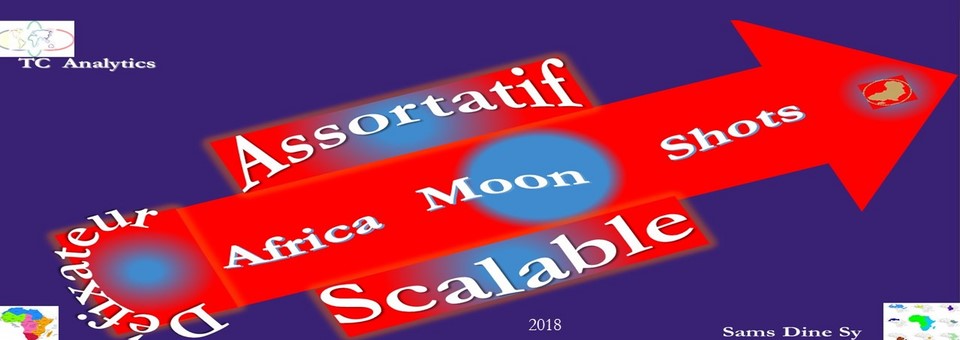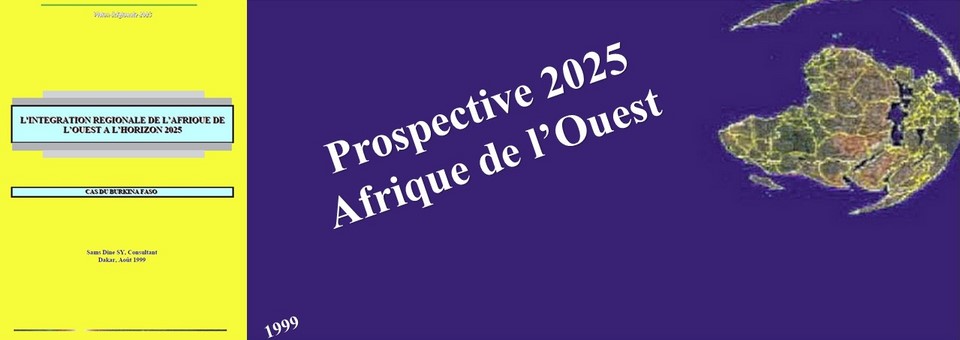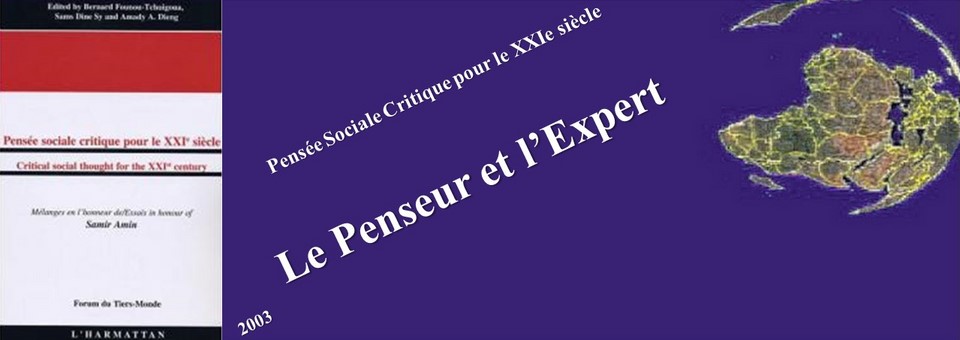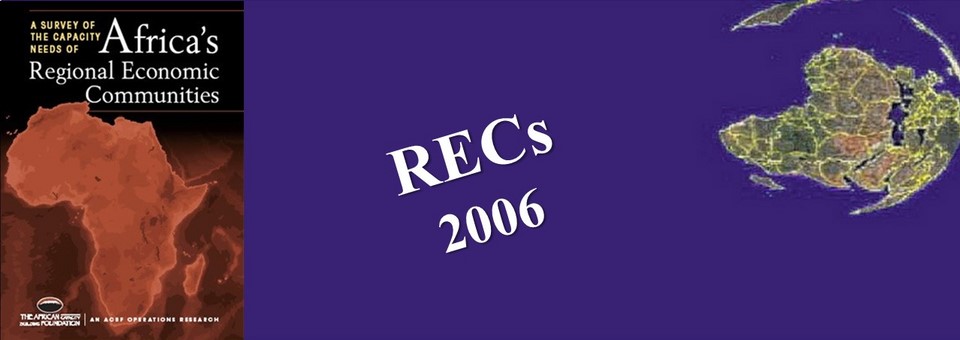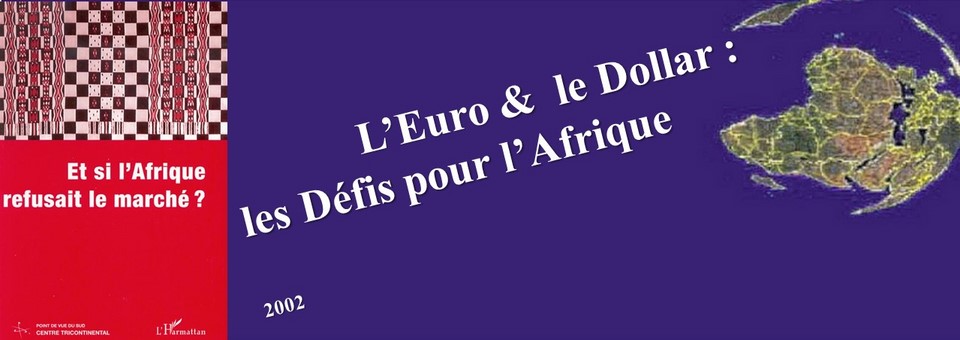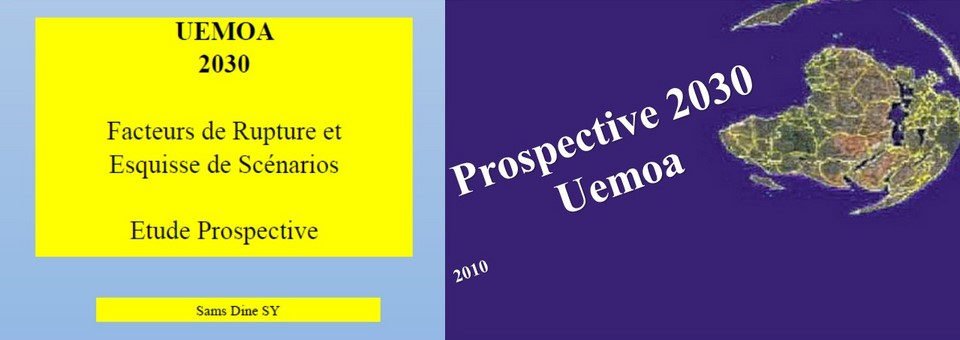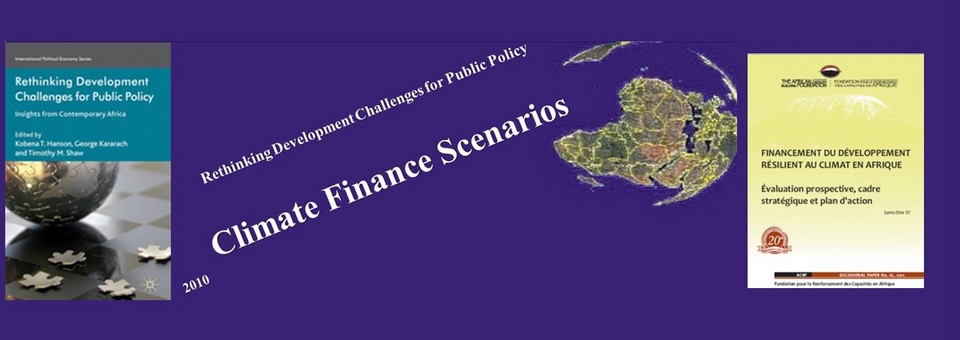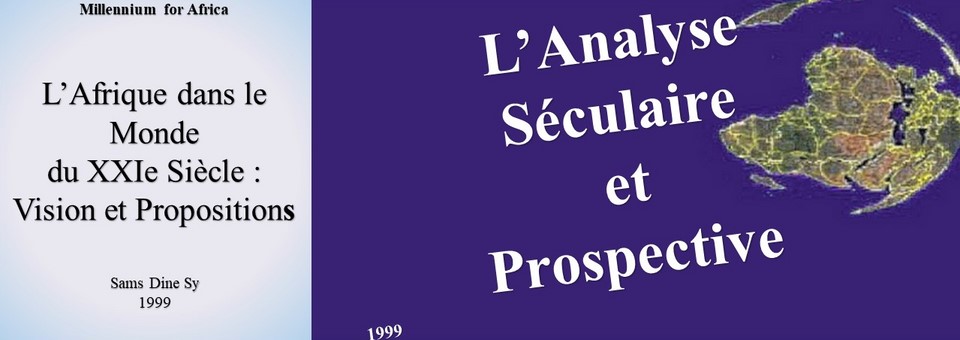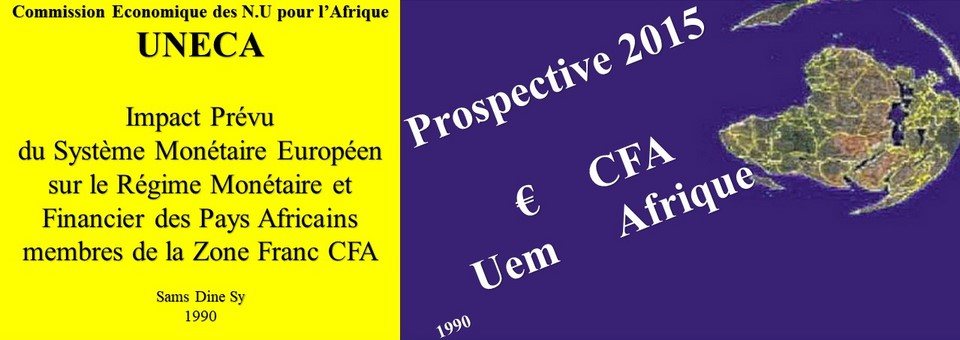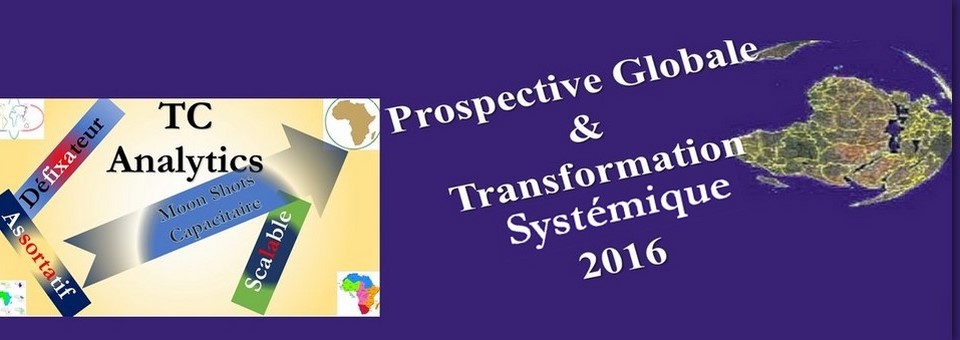Eco: hit but not sunk!
ECO : HIT BUT NOT SUNK07/04/2021
07/04/2021
Eco raises the question of West African identity. The year 2020-21 is dominated by the alternation of attacks by denial of sovereignty and emphatic statements revealing how inextricable the monetary issue is of the military, fiscal and industrial. The region has found itself at the heart of divisions and conflicts of interest that reveal the global dimension of its single currency project.
THE "VEIL OF IGNORANCE"
The confusion is such that the winner is not the one we believe and the losers have not said their last word. Especially after the decision to adopt the Macroeconomic Convergence and Stability Pact (MCSP) 2022-26 as well as the roadmap for the launch of Eco in 2027 (point 34 of the Final Communiqué of the 59th Ordinary Session of the Conference of Heads of State and Government, 19 June 2021, Accra, Ghana). To the tribulations on the Eco-Cfa which has infiltrated like a drones kamikazes in the whole process, is added the game of Nigeria which recalls the no less skillful one of Germany of the 90s when this country delayed the advent of the Ecu, the time to complete the integration of the European market into its own. The pace of progress downstream of the value chains of this African heavyweight, particularly in open source manufacturing, augurs well for the same performance by the end of the decade.
Beyond the clumsiness, there is above all mediocrity; the same that resulted in the 90s by cascading devaluations within Club Med and Club Cfa whose fates are decidedly linked, for the worse while waiting for the best. Especially since the Covid 19 pandemic has projected a thick halo effect, like a common shock whose direct global impact is said to be temporary while asymmetric effects are increasing as vaccine and monetary inequalities explode. It is as if lifting the patents on vaccines without slowing down innovation goes hand in hand with the wide opening of the floodgates of the currency without causing a recession. This will be the case as long as the Eco justification favours economic methodology - the hard core of positive policy analysis - the very methodology that favours the capture of regulators through collusion.
Now the question is whether the two decisions are taken behind this "veil of ignorance" that deprives stakeholders of any knowledge about the process leading up to the 2027 deadline. Or, on the contrary, if they are content with a truncated miniature replica of the European Monetary System (EMS), with one difference: in half a century, the latter has benefited from the massive support of the academic world and the IMF whose contribution to "One market,one money, European Economy n°44, 1990" was decisive in simulating shocks and exchange rate regimes.
The answer to the question is self-evident as long as the positivist paradigm offers economics the privilege of operationalizing itself in policy analysis, reducing the policy process to the stages heuristic within a single cycle, even if it means renewing it after each crisis. As for the European Ecu of the 90s, these decisions are content to redefine the first stage (MSCP 2022-2026) and the third (monetary union and Eco 2027). The Roadmap refers to the transition phase, the culmination of the compromise on the role of convergence between the proponents of a short transition (Eco-locomotive of the economic union) and the supporters of a long transition (Eco-crown of the economic union). This compromise requires the establishment of an "Eco-basket" consisting either of the weighted values of national currencies at the risk of strengthening the Naira or Cfa, or of a basket of currencies (Euro, Dollar, Yuan, Pound Sterling) at the risk of inheriting all the problems. In both cases the Eco-basket is exposed to conflicts of interest and shocks but unlike its model (ECU-basket), it will not soon lead to a single currency for lack of FEX feedback from experiences.
The notion of the "veil of ignorance" (J. Rawls, Theory of Justice, Cambridge, MA: Harvard University Press,1971) calls into question this privilege to the point of blurring the gaze on the process and the deadline of Eco and influencing its agenda. A simple definition makes it possible to contextualize it: decisions on the timing and the Eco process taken under the "veil of ignorance" allow member countries to protect themselves against shocks (internal and external stability) and to face the problems of blocking the process (internal effectiveness, dynamic efficiency). In doing so, they comprehensively identify the benefits and costs of the single Eco-currency and decide on their distribution over time and space. All this without establishing a hierarchy between the principles of freedom, differences and equal opportunities (equity). It will have been recognized that this definition transposes into the field of regional integration the theory of justice revisited by A. Sen's approach to better take into account positive freedom in the assessment of the impact on well-being and substantial capabilities.
THE "VEIL OF IGNORANCE"
TO AVOID SINKING
The confusion is such that the winner is not the one we believe and the losers have not said their last word. Especially after the decision to adopt the Macroeconomic Convergence and Stability Pact (MCSP) 2022-26 as well as the roadmap for the launch of Eco in 2027 (point 34 of the Final Communiqué of the 59th Ordinary Session of the Conference of Heads of State and Government, 19 June 2021, Accra, Ghana). To the tribulations on the Eco-Cfa which has infiltrated like a drones kamikazes in the whole process, is added the game of Nigeria which recalls the no less skillful one of Germany of the 90s when this country delayed the advent of the Ecu, the time to complete the integration of the European market into its own. The pace of progress downstream of the value chains of this African heavyweight, particularly in open source manufacturing, augurs well for the same performance by the end of the decade.
Beyond the clumsiness, there is above all mediocrity; the same that resulted in the 90s by cascading devaluations within Club Med and Club Cfa whose fates are decidedly linked, for the worse while waiting for the best. Especially since the Covid 19 pandemic has projected a thick halo effect, like a common shock whose direct global impact is said to be temporary while asymmetric effects are increasing as vaccine and monetary inequalities explode. It is as if lifting the patents on vaccines without slowing down innovation goes hand in hand with the wide opening of the floodgates of the currency without causing a recession. This will be the case as long as the Eco justification favours economic methodology - the hard core of positive policy analysis - the very methodology that favours the capture of regulators through collusion.
Now the question is whether the two decisions are taken behind this "veil of ignorance" that deprives stakeholders of any knowledge about the process leading up to the 2027 deadline. Or, on the contrary, if they are content with a truncated miniature replica of the European Monetary System (EMS), with one difference: in half a century, the latter has benefited from the massive support of the academic world and the IMF whose contribution to "One market,one money, European Economy n°44, 1990" was decisive in simulating shocks and exchange rate regimes.
The answer to the question is self-evident as long as the positivist paradigm offers economics the privilege of operationalizing itself in policy analysis, reducing the policy process to the stages heuristic within a single cycle, even if it means renewing it after each crisis. As for the European Ecu of the 90s, these decisions are content to redefine the first stage (MSCP 2022-2026) and the third (monetary union and Eco 2027). The Roadmap refers to the transition phase, the culmination of the compromise on the role of convergence between the proponents of a short transition (Eco-locomotive of the economic union) and the supporters of a long transition (Eco-crown of the economic union). This compromise requires the establishment of an "Eco-basket" consisting either of the weighted values of national currencies at the risk of strengthening the Naira or Cfa, or of a basket of currencies (Euro, Dollar, Yuan, Pound Sterling) at the risk of inheriting all the problems. In both cases the Eco-basket is exposed to conflicts of interest and shocks but unlike its model (ECU-basket), it will not soon lead to a single currency for lack of FEX feedback from experiences.
The notion of the "veil of ignorance" (J. Rawls, Theory of Justice, Cambridge, MA: Harvard University Press,1971) calls into question this privilege to the point of blurring the gaze on the process and the deadline of Eco and influencing its agenda. A simple definition makes it possible to contextualize it: decisions on the timing and the Eco process taken under the "veil of ignorance" allow member countries to protect themselves against shocks (internal and external stability) and to face the problems of blocking the process (internal effectiveness, dynamic efficiency). In doing so, they comprehensively identify the benefits and costs of the single Eco-currency and decide on their distribution over time and space. All this without establishing a hierarchy between the principles of freedom, differences and equal opportunities (equity). It will have been recognized that this definition transposes into the field of regional integration the theory of justice revisited by A. Sen's approach to better take into account positive freedom in the assessment of the impact on well-being and substantial capabilities.
SAPIENS, NARRANS, COGNITANS : WHAT ARE THE IMPLICATIONS FOR ECO?
To verify the existence of a thick veil of ignorance around the leaders involved in the Eco process, it is enough to subject to a critical examination their reactions to the shocks and capture strategies of the regulators that are coming. These reactions will reveal the extent to which the Eco advances like the Titanic or propels itself like a global currency in a world in recomposition. Point 30 of the Final Communiqué provides an initial indication. It refers to the New Deal on the financing of African economies, which is part of "Building Back Better,B3" launched by the US before being extended to the Rest of the World (B3W) at the G7 2021 to counter China's Belt Road Initiative, BRI. In the wake, NATO reactivates the concept of the Triad which, unlike that of the 90s, integrates the USA, Europe and Japan into a single cluster, the other two being occupied by China and Russia.
Except that this New Deal is nothing new. There is no need to go back to the 30s, because it was tested during the G7 2019 marked by a conflict of interest that went unnoticed. A record number of participants (21) including more than a third from the African continent including one head of state in three. The explanation lies in the discreet display of a hand holding a Grand Cru as a sign of the lifting of sanctions against luxury goods imported into the United States in exchange for this massive invitation from African leaders to avoid seeing them roam the Mar-a-Lago golf course during the G7 2020. The postponement of the latter followed by its cancellation is not enough to throw it into oblivion. Also, referring to it in 2021 - far from any ambition and audacity - says a lot about the inability to extricate one's grip from the demo-resourcist grip that had its moment of glory in the USA during the second half of the last decade. Note in passing that to date none of the G7 leaders has denounced this deal.
The use of metaphor makes it possible to understand what happened during the G7 2021: back in the international arena, Sapiens humanizes Narrans with B3W. But to convince the rest of the doubtful world, he transhumanizes Cognitans within the Triad to serve as a model even if it means triggering a new Clash against the other two clusters. New Deal would therefore only be a way of welcoming the Federal State; with Africa on a platter in exchange for favours for the EU and other G7 members. The B3W Master Plan will undoubtedly allow the USA to identify with the Global Platform after the successful test run with the Gafam, thus triggering with the Dollar and the Federal Reserve an unprecedented process of systemic transformation. Wholly owned by the United States, this Master Plan stifles any desire to transform monetary, financial and innovation systems elsewhere, especially in Africa. Also, any passive reaction to this strategic maneuver sends the signal of abandonment of Eco, the only global currency project able to trigger the overhaul of the international monetary and financial system, the dissolution of the Security Council, the reconversion of NATO in the service of peace and the rebalancing of interactions between precursors and followers within innovation systems in the name of solidarity.
The Eco is at a crossroads and the leaders involved are in the middle of the ford. There is no reason to be fatalistic in the face of attacks by denial of sovereignty or seduced by all these empathetic statements. They reveal how Eco is at the heart of the global agenda. According to their reactions, the "Tragedy of the Commons in the Sahel" is deconstructed otherwise, the death knell of the continent rings. No one can now "ignore the veil" as a process to dismiss bad decisions, make the right ones, and deal with the problems of blocking following the capture of regulators.
Except that this New Deal is nothing new. There is no need to go back to the 30s, because it was tested during the G7 2019 marked by a conflict of interest that went unnoticed. A record number of participants (21) including more than a third from the African continent including one head of state in three. The explanation lies in the discreet display of a hand holding a Grand Cru as a sign of the lifting of sanctions against luxury goods imported into the United States in exchange for this massive invitation from African leaders to avoid seeing them roam the Mar-a-Lago golf course during the G7 2020. The postponement of the latter followed by its cancellation is not enough to throw it into oblivion. Also, referring to it in 2021 - far from any ambition and audacity - says a lot about the inability to extricate one's grip from the demo-resourcist grip that had its moment of glory in the USA during the second half of the last decade. Note in passing that to date none of the G7 leaders has denounced this deal.
The use of metaphor makes it possible to understand what happened during the G7 2021: back in the international arena, Sapiens humanizes Narrans with B3W. But to convince the rest of the doubtful world, he transhumanizes Cognitans within the Triad to serve as a model even if it means triggering a new Clash against the other two clusters. New Deal would therefore only be a way of welcoming the Federal State; with Africa on a platter in exchange for favours for the EU and other G7 members. The B3W Master Plan will undoubtedly allow the USA to identify with the Global Platform after the successful test run with the Gafam, thus triggering with the Dollar and the Federal Reserve an unprecedented process of systemic transformation. Wholly owned by the United States, this Master Plan stifles any desire to transform monetary, financial and innovation systems elsewhere, especially in Africa. Also, any passive reaction to this strategic maneuver sends the signal of abandonment of Eco, the only global currency project able to trigger the overhaul of the international monetary and financial system, the dissolution of the Security Council, the reconversion of NATO in the service of peace and the rebalancing of interactions between precursors and followers within innovation systems in the name of solidarity.
The Eco is at a crossroads and the leaders involved are in the middle of the ford. There is no reason to be fatalistic in the face of attacks by denial of sovereignty or seduced by all these empathetic statements. They reveal how Eco is at the heart of the global agenda. According to their reactions, the "Tragedy of the Commons in the Sahel" is deconstructed otherwise, the death knell of the continent rings. No one can now "ignore the veil" as a process to dismiss bad decisions, make the right ones, and deal with the problems of blocking following the capture of regulators.
Sams Dine Sy
Ancien facilitateur spécialisé dans la gestion de groupe d’experts
Ancien facilitateur spécialisé dans la gestion de groupe d’experts
